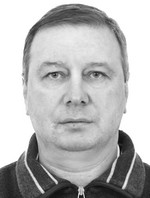Ice hockey training process design basics
Фотографии:
ˑ:
Fizicheskaya kultura: vospitanie, obrazovanie, trenirovka №3-2017, pp.46-50
PhD, Professor D.R. Cherenkov1
PhD A.S. Pavlov1
Postgraduate А.А. Petrov1
Postgraduate A.M. Ovechkin1
1Russian State University of Physical Education, Sports, Youth and Tourism (GTSOLIFK), Moscow
The article offers a theoretical analysis of an ice hockey training process design basics
including the goal-setting; sport training process intensifying; training workload optimising; training workload balancing in different domains; age-specific controls of the training and competitive workloads; and the athletic training and competitive components harmonising aspects. The authors came to conclusion that an ice hockey training process will be designed based on the modern theoretical grounds as recommended by the best modern sport education concepts to attain the maximum possible special athletic fitness in every specific training and competitive period.
Keywords: systemic laws of physiology, modern physical education tenets, ice hockey training specifics, training exercise specifications, ice hockey team training process design methods.
References
- Bleer A.N., Pavlov S.E., Kovylin M.M., Pavlova T.N. Zakony adaptatsii i nekotorye printsipy sportivnoy pedagogiki [Laws of adaptation and some principles of sports pedagogics]. II Mezhdunar. nauch.-prakt. konf. «Fiziologicheskie i biokhimicheskie osnovy i pedagogicheskie osnovy adaptatsii k raznym po velichine fizicheskim nagruzkam» [Proc. II Intern. Scientific-practical. Conf. "Physiological and biochemical and pedagogical basics of adaptation to different physical loads"]. Kazan, 2014, pp. 190-192.
- Bondarchuk A.P. Sposoby postroeniya periodov razvitiya sportivnoy formy [Methods of design of fitness shaping periods]. Nauka i sovremennost, 2015, no. 1 (3), pp. 35-63.
- Volkov V.N. Sportivnaya trenirovannost: paradoksy diagnostiki [Physical fitness: paradoxes of diagnostics]. Teoriya i praktika fiz. kultury, 2002, no. 10, pp. 10-12.
- Vorobev A.N. Tyazheloatleticheskiy sport. Ocherki po fiziologii i sportivnoy trenirovke. Izd. 2-e [Weightlifting sport. Essays on physiology and sports training. 2nd ed.]. Moscow: Fizkultura i sport publ., 1977, 255 p.
- Zatsiorskiy V.M. Fizicheskie kachestva sportsmena [Athlete's physical qualities]. Moscow: Fizkultura i sport publ., 1966, 250 p.
- Pavlov A.S., Petrov A.A., Pavlov S.E. Zakony «perenosy trenirovannosti» v khokkee [Laws of "transfer of fitness" in hockey]. Olimpiyskiy byulleten no. 16 / Comp. N.Y. Melnikova, A.V. Treskin, N.S. Leontyeva, A.Y. Nikiforova, L.S. Leontyeva. Moscow: Chelovek publ., 2015, pp. 167-170.
- Pavlov S.E. Adaptatsiya [Adaptation]. Moscow: Parusa publ., 2000, 282 p.
- Pavlov S.E., Pavlova T.N. Tekhnologiya podgotovki sportsmenov [Athlete's training technology]. Moscow region, Shchelkovo: Markhotin P.Y. publ., 2011, 344 p.
- Platonov V.N. Adaptatsiya v sporte [Adaptation in sports]. Kiev: Zdorov’ya publ., 1988, 216 p.
- Platonov V.N. Sistema podgotovki sportsmenov v olimpiyskom sporte: obshchaya teoriya i ee prakticheskie prilozheniya [Olympic training system: general theory and its practical applications]. Moscow: Sovetskiy sport publ., 2005, 820 p.
- Pianzin A.I., Drandrov G.L., Medvedev V.N. Vzaimosvyaz komponentov trenirovochnoy nagruzki razlichnoy napravlennosti s izmeneniyami parametrov sostoyaniya kvalifitsirovannykh legkoatletov [Interrelation of components of multi-purpose training load with changes in parameters of skilled track and field athletes' condition]. Teoriya i praktika fiz. kultury, 2000, no. 3, pp. 54-57.
- Pavlov S.E. Fiziologicheskie osnovy podgotovki kvalifitsirovannykh sportsmenov. Ucheb. posobie dlya studentov vuzov fizicheskoy kultury [Physiological basics for skilled athletes' training. Study guide for students of physical education institutions]. MSAPC publ., Malakhovka, 2010, 88 p.
- Folbort Y.V. Sistema cheredovaniya utomleniya i otdykha kak fiziologicheskaya osnova trenirovki [Fatigue and rest alternation system as physiological basis of training]. Vrachebny kontrol v protsesse sportivnogo sovershenstvovaniya [Medical control in sports improvement process]. Moscow: Nauka publ., 1952, p. 61.
- Kholodov Zh.K., Kuznetsov V.S. Teoriya i metodika fizicheskogo vospitaniya i sporta. Ucheb. posobie dlya studentov vuzov fiz. kultury [Theory and methods of physical education and sports. Study guide for university students]. Moscow: Academia publ., 2000, 476 p.
- Costill D.L., Thomas R., Robergs R.A., Pascoe D., Lambert C., Barr S., Fink W.J. Adaptations to swimming training: influence of training volume. Medicine and Science in Sports and Exercise. – 1991. – N 23. – P. 371-377.
- Fry, R.W. Periodisation and the prevention of overtraining / R.W. Fry, A.R. Morton, D. Keast // Can J Sport Sci. – 1992. – N 1 7 (3). – P. 241-248.
- Kuipers, H. Overtraining in elite athletes. Review and directions for the future / H. Kuipers, H. Keizer H. // Sports Med. – 1988. – N 6 (2). – P. 79-92.
- Lehman M. Overtraining in endurance athletes: a brief review / M. Lehmann, C. Foster, J. Keul // Med Sci Sports Exerc. – 1993. – N 25 (7). – P. 854-862.
- Portman, M. Planification et Periodlsation des Programmes d'Entrainement et de competition / M. Portman // Track and field journal d l’athletisme (Ottawa): Summer. – 1986. – N 30. – P. 5-15.



 Журнал "THEORY AND PRACTICE
Журнал "THEORY AND PRACTICE